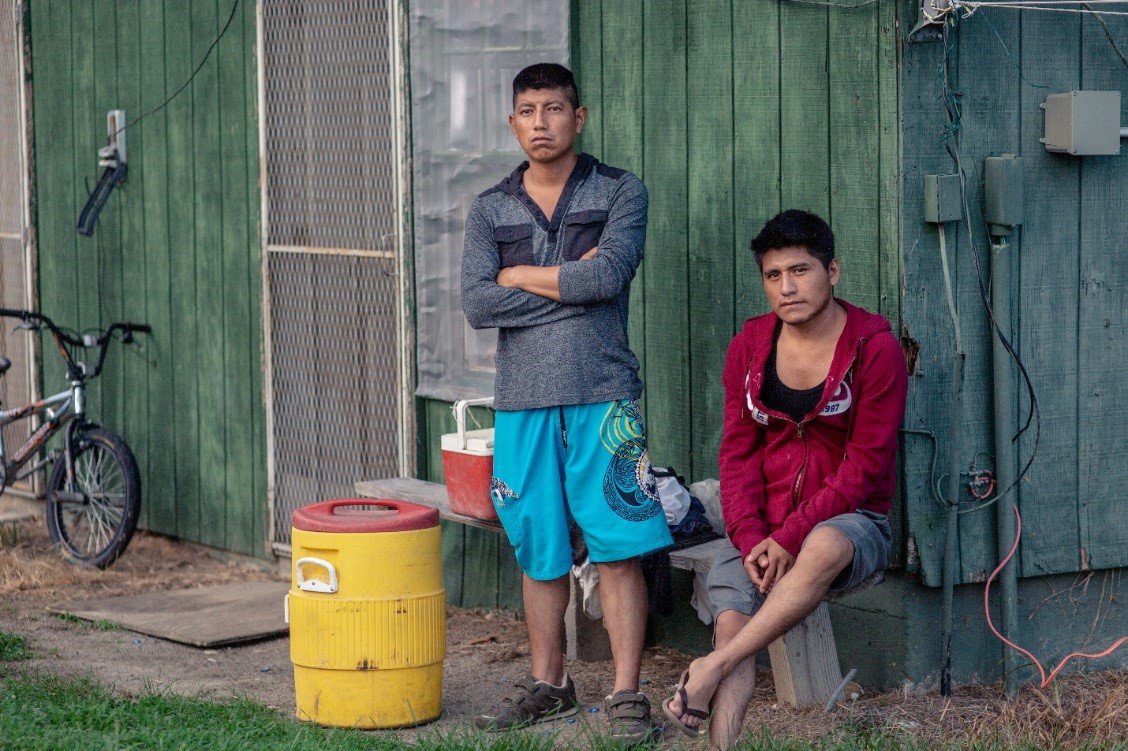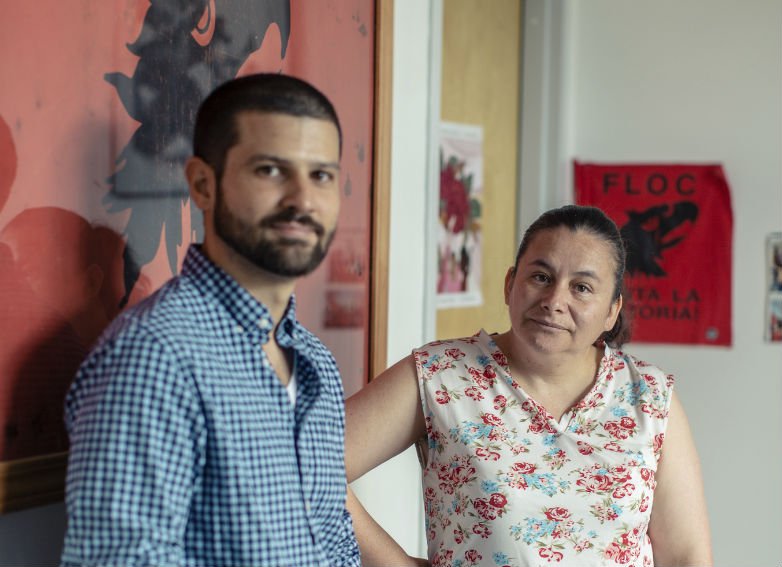Migrant workers in North Carolina speak out against abuses in Whole Foods' supply chain

In April, Ramón, 25, and Pedro, 29, came to the United States from Mexico with visions of a land of opportunity: bountiful fields, which they could work—hard, but satisfying work—that would help supplement their families’ incomes.
Back home, they were recruited by agricultural contractors who took them through the process of applying for H-2A visas, which allow employers in the US to bring in foreign workers for temporary agricultural jobs.
“We wanted to come to the US to work legally through a visa,” says Ramón. “We are looking for the American dream that many Mexicans hope to achieve.”
The recruiters promised that all costs the men would incur to get to the US—visa application fees, transportation, food, and lodging costs—would be reimbursed by their employer. So Ramón and Pedro scrounged up about 25,000 pesos each (around $1,300 USD) to secure their spots. “It’s not an amount you can easily come up with,” Pedro shared. “I had to borrow it, and now I am indebted.”
They had to pay for their own transportation to North Carolina, another $170, which was all they had on them. They expected to be paid back by their employer, a farm within Whole Foods’ supply chain. But when they got to the farm, they were told there would be no reimbursement.
Trapped in debt
The wages Ramón and Pedro earn aren’t going to help them recover those costs anytime soon. Instead of an hourly wage, they receive a piece rate of $1 per bucket of produce picked, which means that in order to earn $100 a day, they have to put in enough hours, sometimes skipping breaks or meals, to fill 100 buckets. But some days there’s not enough food to harvest, so they earn only a few dollars.
Their employers also deduct money from their wages for things like food. “We have to pay $70 every week [for meals], and I think it’s not worth it,” reports Pedro. “They only give us two meals a day, and we don’t get any breakfast. Working the fields is tough. It’s tiring and hot.”
“Back home we’re used to working the land, but things are very different here,” adds Ramón. “The temperature is extremely high here. Working for sometimes 10 hours straight, it is hard not to get exhausted.”
If they need tools or protective gear, the men have to buy those themselves. “All jobs should provide tools and equipment,” says Ramon. “The tools you use at work, you have to buy yourself, and it really isn’t fair that this has to come from our own pockets. Companies are supposed to provide this for you.”
If they need to use the bathroom in the field, they must walk about half a mile to get to one, otherwise they have to hold it or use the bushes.

Claiming their rights
Ramón and Pedro have been working with the Farm Labor Organizing Committee (FLOC), Oxfam’s partner in North Carolina, to claim their rights.
“The reimbursement is part of our rights, and it [was] clearly explained to us at the [Mexican] consulate,” says Pedro. “When we got here, we didn’t know we were never going to be getting that reimbursement. We are going to look for a way to fight for this right that is ours.”
FLOC organizer Leticia Zavala says that employers who do not follow visa requirements, such as paying an hourly rate to workers, are subject to fines, but that requires workers reporting them. “For a worker to report their employers, there are a lot of barriers,” she says. “There’s language, there’s time because workers don’t have 9-5 schedules and also their employers control where they go, and a lot of workers simply don’t know what their rights are.”
Ramón and Pedro aren’t alone; there are at 300 workers on their farm, who are also enduring mistreatment. They have become vocal with their compaῆeros about standing up for their rights, to claim their reimbursements and be paid properly.
It’s not an easy fight; there’s a threat their visas will be revoked, or they will blacklisted. But these are chance they are willing to take.
“Many workers don’t do anything because they are afraid they will not be brought back next year, for fear of losing their jobs, or simply because they are happy just coming to work and returning next year,” says Pedro.
The first step to changing their working conditions, Zavala says, is to confront their grower. “They have to say, ‘You violated this right and we need to change. We’re demanding our rights to be respected.’” And to do that, she says, they need support from all of us consumers to put pressure on growers and the companies they sell to, like Whole Foods, to improve worker treatment.
Protecting grocery store workers
For over two years, Oxfam’s Behind the Barcodes campaign has highlighted inequality in the food value chain with supply chain workers, such as Pedro and Ramón and farmers losing out to large supermarket chains. Now, as we are in the middle of the coronavirus pandemic, we are calling on US grocery stores to take crucial steps to support the essential workers, and ensure that the workers in their stores are safe and healthy.